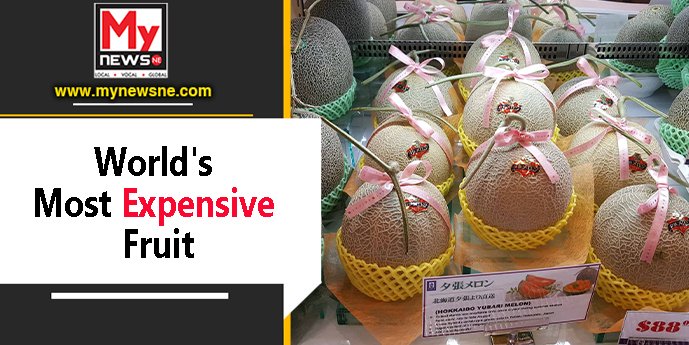World’s Most Expensive Fruit, Costs Between Rs 8,000 to Rs 18 lakh
Guwahati: The most expensive fruit in the world, Yubari Melon from Japan. The fruit is not cultivated in other parts except in the island nation. Just like the price, the taste of this fruit is unique. But for you, a middle class like me, it’s almost unimaginable to taste this fruit. Because for middle-class people like us there is an uproar when the price of vegetables, fruits increases by two rupees. In that context, buying a fruit worth millions of rupees is no less than a snake in the sky. The price of the Yubari fruit is not just because it tastes, aromas, and is only in Japan. At the root of the rise in its price is the difficulty in producing it, the cost of taking care of it.
According to the lucky ones in the world who have eaten this fruit, there is no comparison between the sweetness of the youth. It is cultivated in the small town of Yubari in Japan. It takes more than 100 days for the Yubari fruit to grow. When old, this fruit has a special smell that is like the scent of the navel of honey or musk. As seen in the picture, the young fruit surrounds a complex and delicate net. In Japan, Yubari is regarded as a mark of aristocracy and a special gift among the upper classes.
This Yubri fruit belongs to the family of watermelons which looks like a small watermelon. But when it ripens it becomes a little orange in colour. Yubari is cultivated only in Japan. The farmers plant the saplings by dividing them into small groups. It is done only inside the green house. It has been created by corsing two species of melon earls and barpees. The farmers allow only one watermelon per plant to get all the nutrients of the young plant.
So the price of a Yubari is expensive enough to think. It has been stated above that the cost of a yoke is between Rs 8,000 and Rs 18 lakh. But over time and depending on the buck, its prices are low. Sometimes Yubari is auctioned. Then the price of a Yubari goes up to millions of rupees. This Yubari is cultivated by farmers very rarely. Those interested have very good videos about this farming on YouTube. They can be seen.

